This story originally appeared in i-D’s The Voice of a Generation Issue, no. 356, Summer 2019. Order your copy here.
If you know, you know. There’s a Jamaican takeaway in the middle of New Cross, South London. Head through the entrance, past the counter, down the unmarked staircase at the back and you’re in the kitchen. Oversized pots of red bean soup bubble on vast stoves, dozens of patties are loaded onto baking trays. Over the clank and hiss of industry you can hear reggae blasting, the radio locked to local pirate Flames FM. With a nod to the chef, you can pick through the noise and steam and between the steel kitchen tables to access a thin, slightly grubby door on the far side — push that open, and there’s another door, this one reinforced. This door means business. If you’ve called ahead and booked a session, and you bang loud enough to be heard, this door will swing inwards. Inside is a compact recording studio, makeshift vocal booth in the corner, sofa against one wall, the other plastered with hundreds upon hundreds of post-it notes, tagged and stuck up by the many artists who have passed through over the last couple of years. This is SNM studio, run by Tweeko, an engineer barely out of his teens. It’s one of the numerous underground production houses that, despite being near invisible in mainstream media, are recording and releasing the drill music that’s infiltrating the British pop charts near weekly.
“Back in the day we were making music because we liked it, we didn’t ever think that it would hit the charts — we didn’t even know it was an option,” Tweeko marvels “Back in the day it never used to be us playing on the radio, or playing in the clubs, nothing like that, but now it is! It’s beautiful, overwhelming. I feel accomplished and there’s a lot more success to come.” Tweeko is feeling buoyant. His tune, The Coldest Link Up, has gathered together drill MCs from across the UK and racked up millions of views and streams in the process. He’s a prime example of the new generation of self-made label/producer/studio owners who are launching a constant assault on the mainstream. He’s not alone. Down in Croydon you have Finesse Foreva, managers of drills most notorious duo, Skengdo x AM, alongside the scene’s fastest rising star, S1. From the FF headquarters they’ve gathered together a team of engineers and producers giving employment and a sense of real belonging to a generation of young Londoners. Despite what you may have heard, for these kids drill is less about taking lives and more about giving them meaning.

Over the last few years the make-up of the British charts has slowly been shifting in favour of these street level production houses. The rise of the Afroswing sound in 2016 brought the likes of J Hus, Yxng Bane and Not3s widespread commercial success. This fundamentally shifted the overall pop sonics of Britain away from the aging sound of grime that major labels were signing and mainstream media — who can be relied on to miss the point when covering contemporary black British music — were championing. Newspapers were still describing the likes of J Hus or rapper Tion Wayne as ‘grime’ MCs, fundamentally misunderstanding that the sound they were making was, in fact, being created in the bedroom-studios of teenagers who had almost zero interest in writing grime beats. By the time the majors labels finally started to ‘get’ the Afro infused rap sound, and narrowed it to fit it into the tight pro table returns of streaming service playlists, the UK streets had already moved on, embracing the dark energy of drill. This time however, the producers, label managers and artists who were making the music were a little bit older (and by this, we mean late teens rather than early), and had a little more experience under their belt. Breaking out of their bedrooms, they have started setting up studios across London, creating an underground industry that has turbo-charged the careers of the likes of Unknown T, Russ, Dig Dat, Headie One, Loski, Skengdo x AM and more, all of whom are going on to radio playlisting, sold out tours and international features. It’s a good time for the underground.
Head over to Park Royal in far West London and you can find one of the numerous studios owned and run by The Brigade, a loose, 25+ strong collective of producers and engineers set up by MK, a producer who has written for almost everyone in the UK rap scene. The Brigade range in age from 14 to late-20s, with the younger members having to cram studio time in around GCSE revision. They’re responsible for such breakout hits as Unknown T’s Homerton B and Headie One’s Golden Boot. Even more lucratively, one of the crew’s most experienced producers Gotti wrote the beat for Big Shaq’s worldwide comedy smash Man’s Not Hot (itself a satire on drill’s lyrical excesses), the royalties from which have paid for the Park Royal studio, which is kitted out to professional levels.
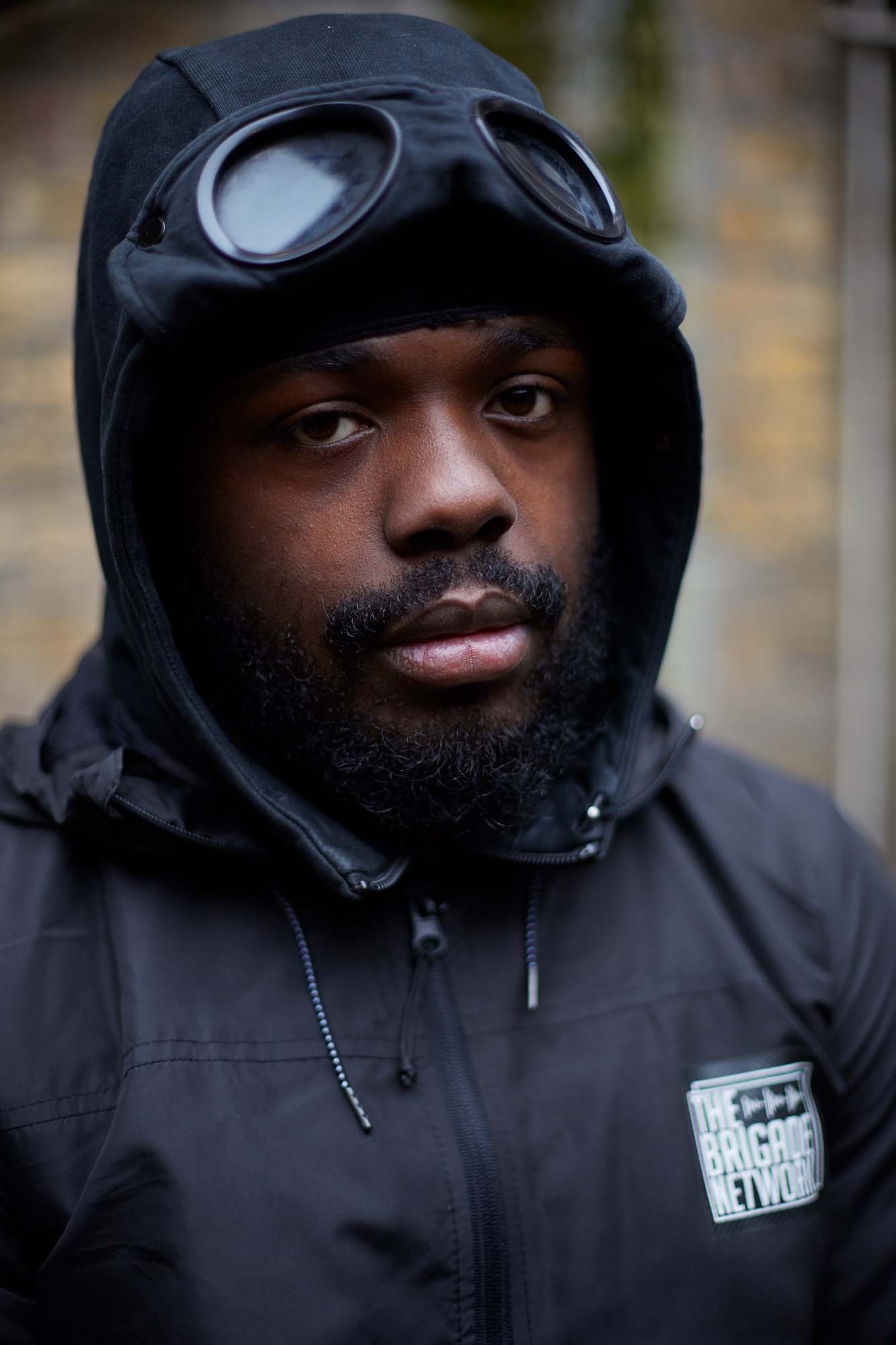
The Brigade have found themselves in the position of writing a huge percentage of the tracks that are currently racking up millions on views on channels such as GRM Daily, and a new major label A&R process has developed where the majors are barely involved in the creation of any music. Instead songs are pumped out from these indie production houses, videos are filmed by one of the various UK channels (principally GRM Daily, Link Up TV, Mixtape Madness and Pressplay), often costing as little as a couple of hundred quid to shoot. When one of these tracks starts hitting serious levels of support, the likes of Universal and Sony swoop in waving around cheque books, so they can sign and re-release music that has already been dominating the underground (this is effectively what happened with Homerton B and Dig Dat’s Air Force). The majors’ input has been reduced to leveraging their domination over media coverage and streaming playlists, and as a result creative decisions are being led by the streets rather than the suits.
Essentially this means we’re entering into one of those often all-too-brief explosions of creativity in the UK’s music scene, a time similar to the early days of punk, rave or grime, where independent labels and production houses are bursting into the mainstream by making a sound that has been widely castigated and demonised (quite literally in the case of drill; The Times ran a headline calling it “demonic music”). The producers are already talking about new forms that are coming through, with the term Crashment mentioned by both Tweeko and The Brigade “It’s enjoyable drill,” says Gotti “it’s about rhythm, it’s more of a bop than drill, the music and lyrics are less angry,” and right now everyone is feeling supremely con dent. They’re not even too worried about the majors ripping off their sound — “They can’t,” points out Brigade’s WarDot, who has written beats for everyone from Stormzy to 67, “they can’t rinse the sound ‘cause drill is fed with emotion. It’s about where you are and what you see every day.”
“Drill will always be there but something will develop from it the way drill developed from grime. It’ll be something you can dance to, something more chart friendly.” TWEEKO, SNM STUDIO
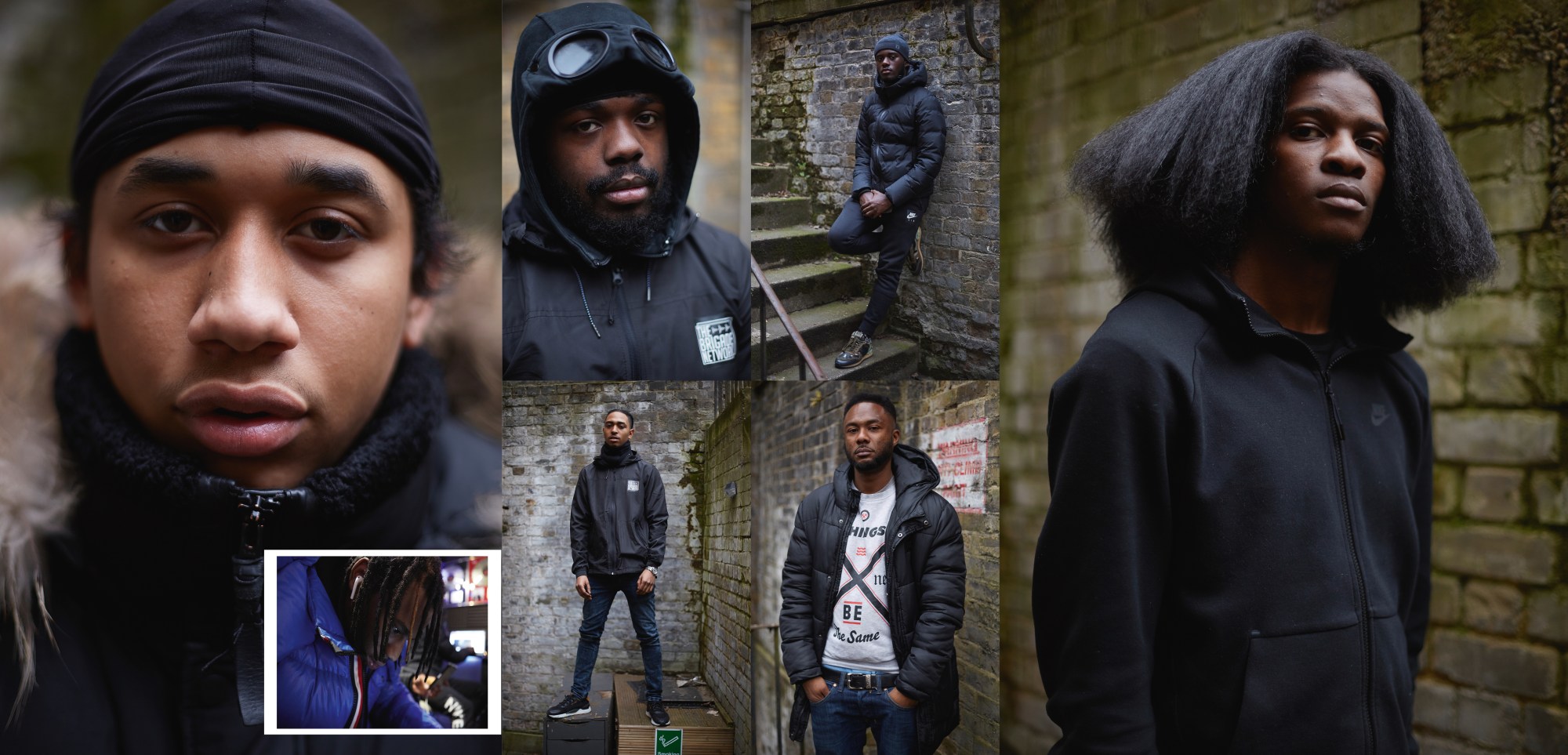
The BRIGADE Members: MKThePlug, M1ontheBeat, GottiOnEm, MikaBeats, BKay, Sapphire, Sxbz Beats, 3TheMan, Zeph Ellis, 5ive Beats, Sykes Beats, Jm00, Kayman, Bkay, ChubzTheProducer, Wardot, Gotcha Beats, Vader Beats, Yamaica, Foreign Kash, Sotti, 17 Beats, Hulkz, 9YC, Tweeko, BDK, Marz Beats. Tunes: Skengdo x AM, Crash. Headie One, Golden Boot. CB, Take That Risk. Unknown T, Homerton B. KO & Unknown T, 9er Ting.
When did The Brigade get together? MK: In 2015. It started as Splash Brigade, with me, Marz, Sotti, Chubz, there was five or six people. One day I was like, nah everyone else is patterning their groups, I need to pattern a big group! Gotti: I saw a fat group chat on Twitter, the whole community! So I was like, yeah, I’m involved. So I know there’s MK’s studio in Archway, and Gotti’s in West London — where else do you have? MK: Along with Gotti’s in Park Royal, and my one here, there’s one in Forest Gate, then Gotcha is an engineer at Finesse Forever, and Sebz and Tweeko are down in South London And production has become a full time career for you? MK: This is my job. Not even a nine to five. This is a 24/7. This is my life! Gotti: The studio is always busy, you have to keep it moving. We’re trying to lock the game
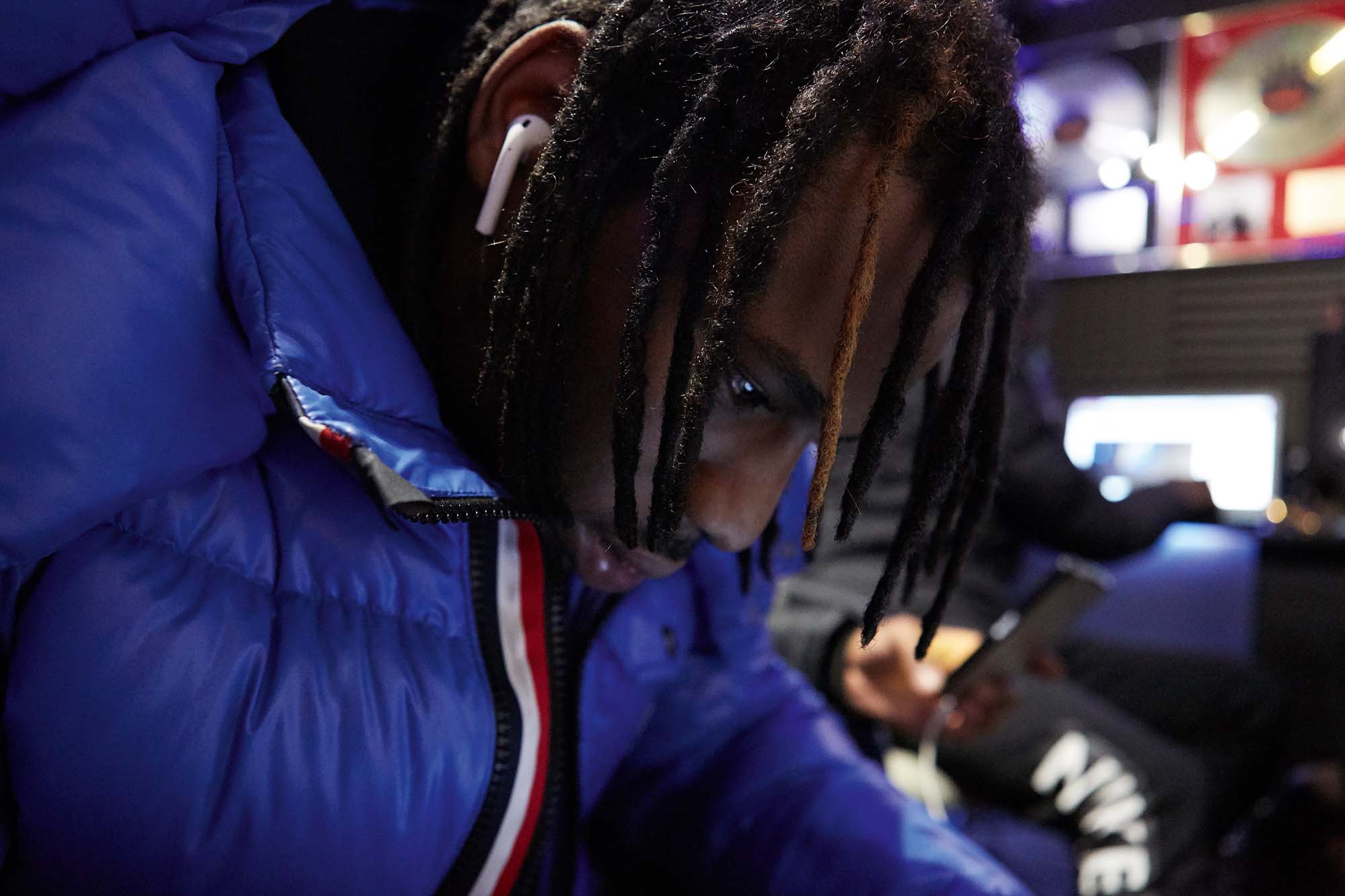
Where do you see the drill sound going? Gotti: Listen, Australians are saying ‘shhhh’ on tracks — where do you think that’s coming from? It’s from here. The UK version of drill is taking over — it’s like trap and grime mixed together. And soca! Listen to it, it’s a dance ting — if you listen to how Russ spits, he spits on the snare pattern of a soca What would you change in the scene? Sapphire: We need more people putting meaning behind their bars. More time there’s no reason for what they’re rapping about, they’re not inspiring people. Gotti: It doesn’t need to have a meaning, you can just like the riddim, but if it has a meaning then you get the full package, sound and meaning. Are you ever frustrated as producers, thinking you could build better bars? Everyone: Yeah! MK: Everyone here can rap bro! One time I can see it happening, that we get in the booth and record it. Gotti: MK would do numbers if he did!

FINESSE FOREVA Members: SK, TK, JB104, Capri, Gotcha, Aiden, Kortney. Tracks: Skengdo x AM, 2 Bunny. KDM x MP, Men Are Trash. Russ, Gun Lean.
How long have FF been together? We’ve been together for two and a half years, that’s when it was created. Me, TK and JB were childhood friends. TK was already in the music industry doing his thing, and so was I. Two years ago, TK hit me up to go to hip hop karaoke, that’s how we got reacquainted. I don’t even like hip hop karaoke, but went along and we got talking about music. That day we wrote a business plan, and from then on it’s been two years non-stop running. Who’s in FF now? It’s broken down into so many areas of the company. We have three studios, a production team, an engineer team, an A&R team, the management team. Most of the people we work with are young, from 13 and upwards. Me and TK predominantly do all the business. JB is our lead producer, and the engineers can do their own projects to give to labels, the producers use the studio to make beats, we have external studio clients and external art clients, there’s a lot of income streams!
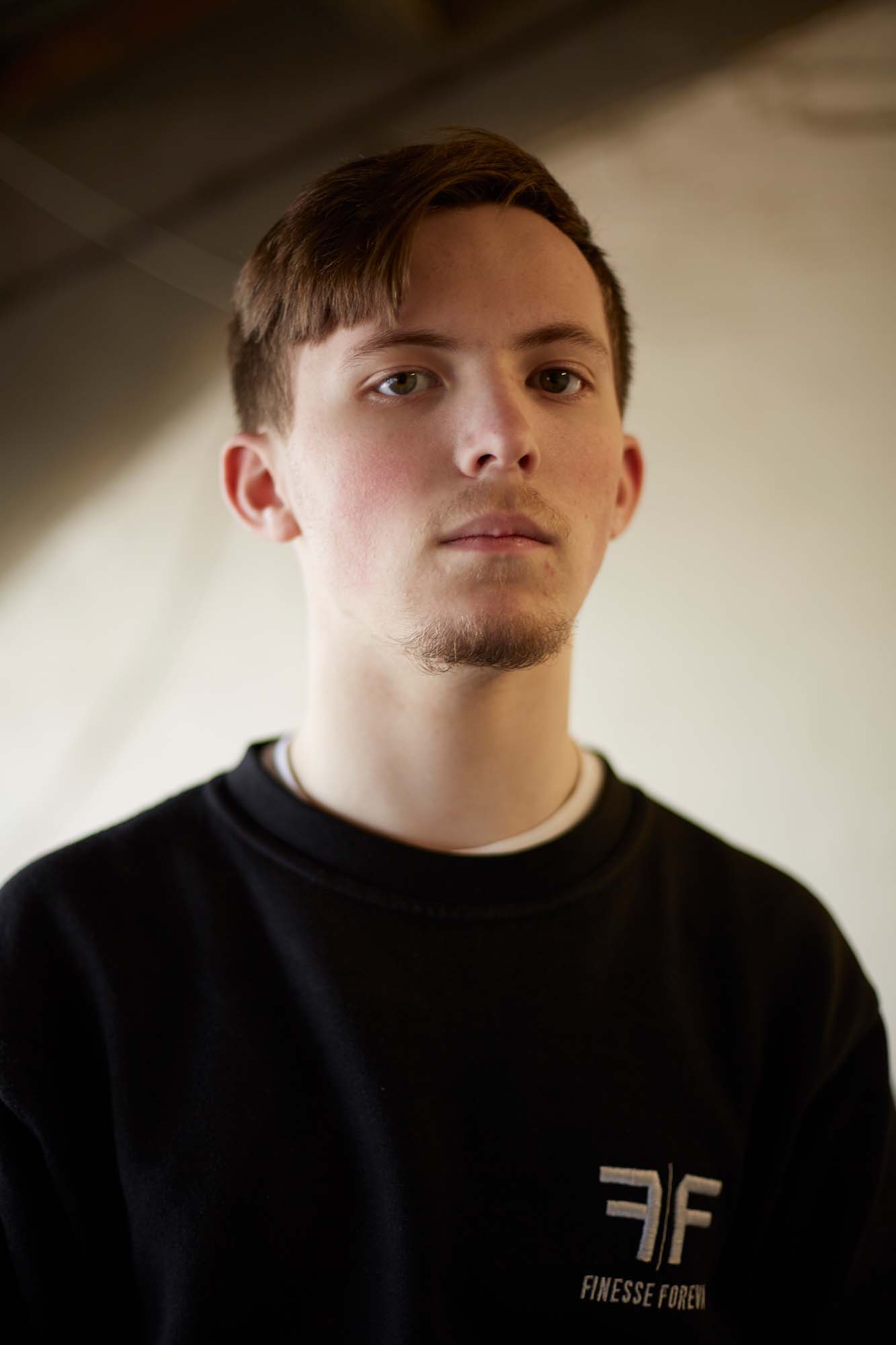
Why do you think all these new production houses are starting? Its cause of the growth of the music industry, new sounds are coming out every day. They’re creating their own unique genres and sub- genres, so all these production houses are springing up. So what makes FF different? We don’t just work with the big artists, we develop artists – we work with people from a very young age – a lot of the kids, we’ve seen them grow from teenagers. It’s not just music we deal with, it’s also their personal life. We make sure they’re financially stable – doing music by yourself is hard because there’s no money at first. We also deal with parents, making sure artists do their school work, because you need a back up plan if this doesn’t work out. We’re giving people security – we want the people we work with to have longevity.
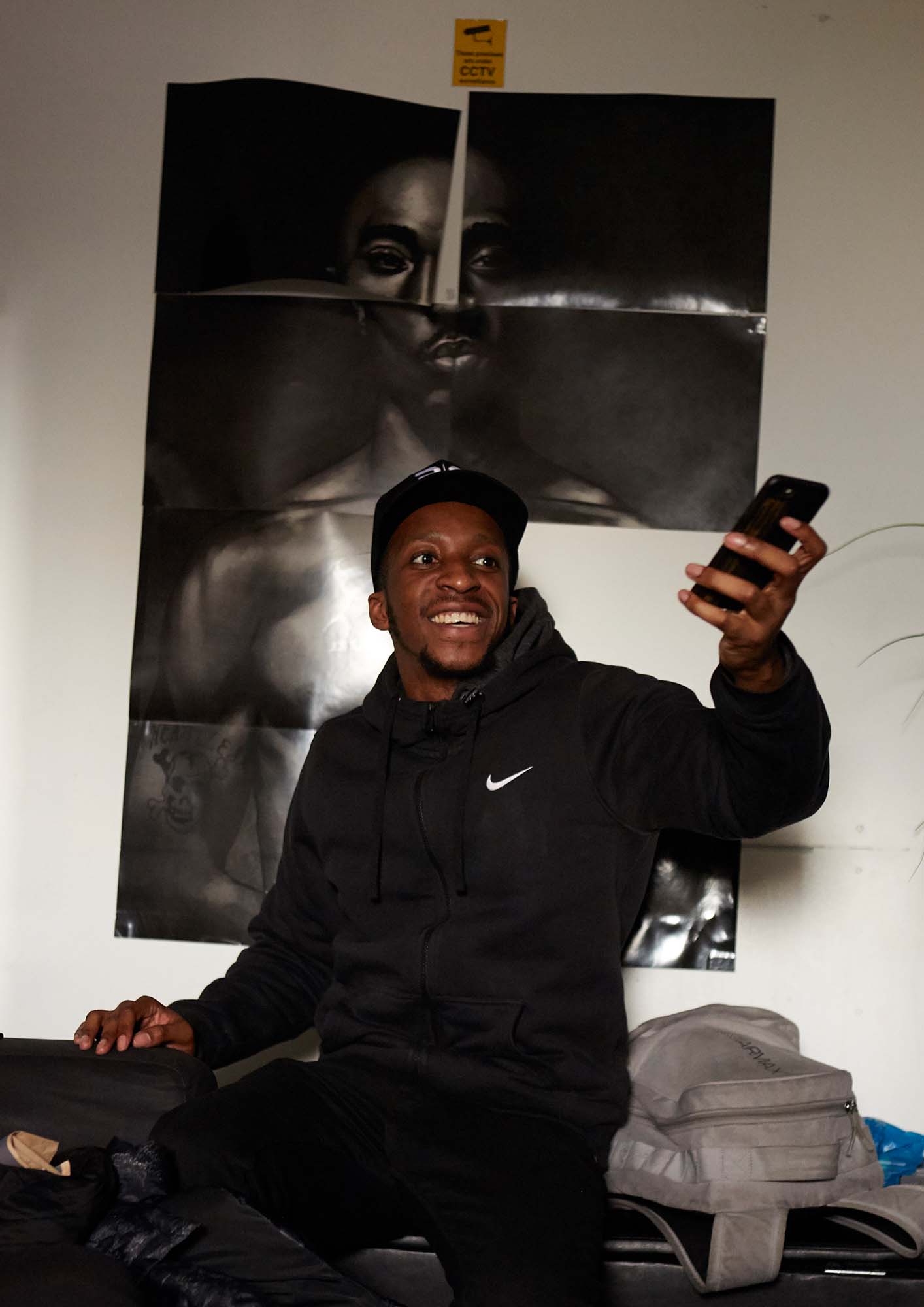
What’s been the hardest things to deal with? One, you gotta be patient, you’ve got to wait to see the way you want it to go. Two, with the whole managing side of things, you’ve got someone’s life in your hands, so we sacrifice our whole lives. We don’t really have a social life, its 24/7. You have to take other things into account that might affect the music, you’ve got to keep them in the right mind frame to make sure they can make music. And what would you change? I think more people need to work together. People who are higher up in the hierarchy should come and help up-coming artists, they should support and they don’t. It’s sad. If they help out it won’t only bene t them, it’ll bene t everything else.

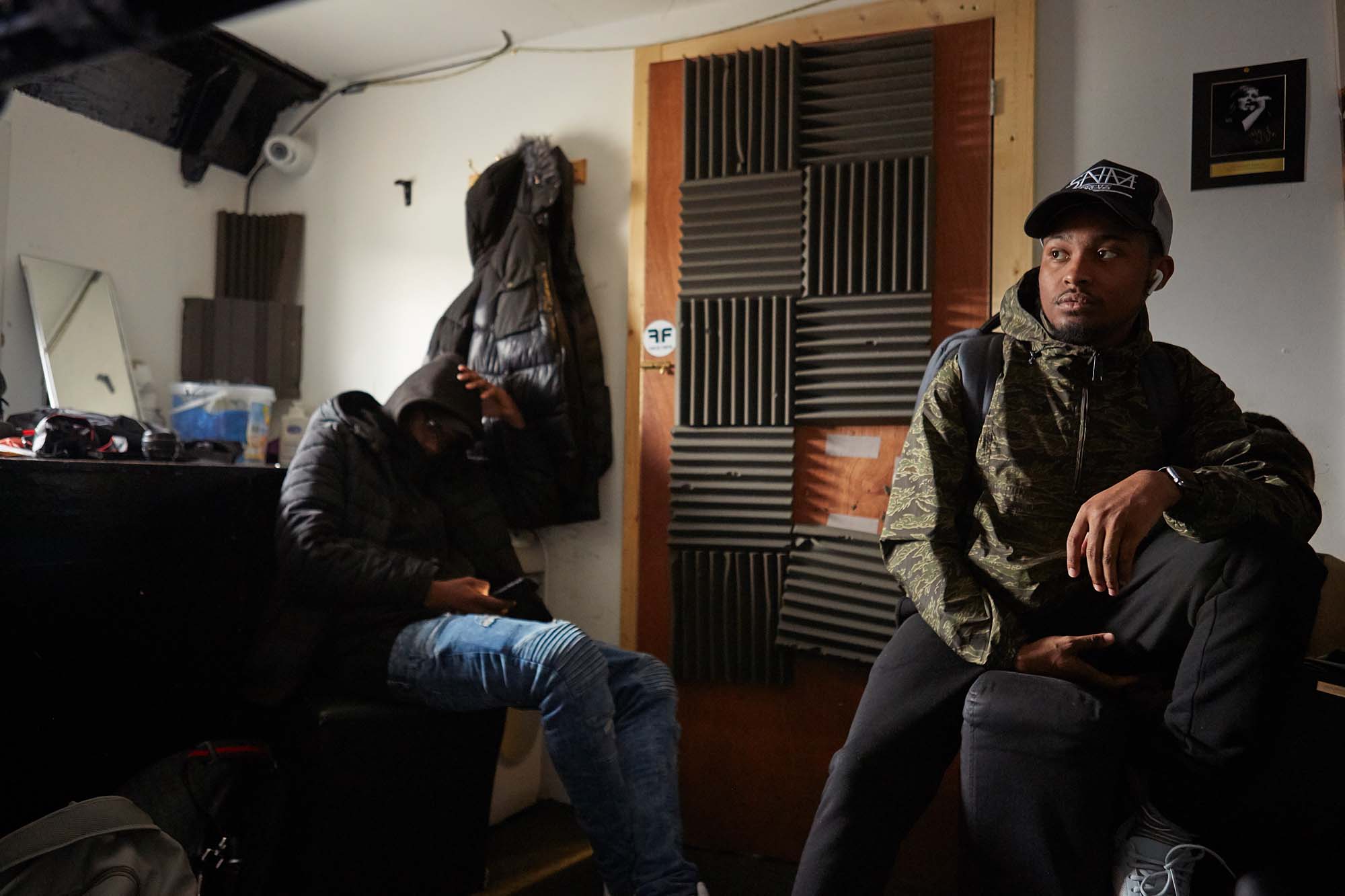
TWEEKO / SNM STUDIO Members: Tweeko, Scratch, Sebz, Loddsy, S. Tunes: Skengdo x AM, Paris. SL, Them Boyz. Tweeko x Sebz ft Skengdo x AM, Burner, M24, 12World, 23 Drillas and Lowkey, The Coldest Link Up.
How did SNM start? I’ve been running SNM for about two years. I’m 20 now. It’s been lots of hard work really, funding came from myself. I had to work part time in my dad’s restaurant and save up. Every penny I got I was saving, saving, saving. One time I was looking for a space, then after a while my dad realised there was a basement under his restaurant — it’s not entirely his, it belongs to next door but we’ve got access to it. So I pay rent to next door and to my dad. Once I had enough capital I built the walls and bought in all the equipment. I been saving for as long as I can remember, probably since 11 or 12 doing little paper rounds and everything. Everytime I pass through the studio it’s so busy. We get booked out ridiculously. Let’s say it’s the end of the month, I’ll have half of the next one already booked. The times are crazy, there’s been times I’ve been mashing about 96 hours per week, just trying to keep up with demand. I’m going 12pm until 5am some days, the demand is crazy. How do people find you? It’s 100% word of mouth, a friend tells a friend, or they hear the famous Tweeko jingle, and they find themselves in my DMs really. We do a little bit of everything, the other day I was mixing a house tune, I get a lot of RnB singers that come through, a lot of drill and afrobeats, obviously. There’s a lot of different sounds that come through. That Tweeko jingle is on a lot of songs. As a sound engineer it wasn’t common to get my jingle on things, but that’s what I wanted to push. When I rst started there wasn’t a lot of artists who even wanted it on their song — I can’t even count the amount of times I’ve had to take the jingle off a song, but now it’s completely opposite, people demand it. What does SNM stand for? SNM stands for Sound N Music, but it also has a hidden meaning, standing for Showkey and M Dot [South London rappers who were killed in 2016] as well — we all grew up in the area together, we all knew each other very well, I made a couple of tunes with M Dot. After their passing it was only right to incorporate something like that. Finally, where do you see drill going next? Drill will be there, just like grime is there now. Over time that will happen, and something will develop from drill in the way that drill partially developed from grime. It’ll be something that’s 808 heavy, that you can dance to. I see people are making Crashment now as well, something you can dance to, probably something less cruddy and more commercial, more chart friendly.
Credits
Text Ian McQuaid
Photography Tim and Barry
All clothing worn throughout models’ own.
